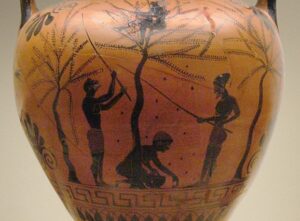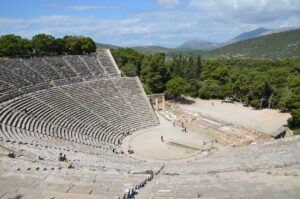Archimedes was an ancient Greek scientist and made considerable advancements in the fields of mathematics, physics, and engineering. He was born in Syracuse, Sicily in 287 BCE and died in 212 BCE, which means he lived to be about 75 years old. He is widely considered as one of the greatest mathematicians of all time, and his works have had a profound impact on the fields of mathematics and physics. In this article, we explore how his contributions impacted both ancient Greece as well as the world today. As such, historians consider him to be an important figure in the development of ancient Greek culture.
Early Life and Education of Archimedes
As stated above, Archimedes was born in Syracuse, Sicily. At the time, it was a Greek colony. His father, Phidias, was an astronomer and mathematician. Archimedes was educated in Alexandria, Egypt, where he studied mathematics and engineering from the famous mathematician, Conon of Samos. When he returned to Syracuse, he continued his studies and began to make important contributions to the field of mathematics.
Archimedes’ Contributions to Mathematics and Physics
He made numerous important contributions to mathematics, which had a lasting impact on the field. One of his most famous works is ‘On the Measurement of a Circle’, in which he used the method of exhaustion to calculate the value of Pi. He also developed the ‘Archimedes’ Principle’, which states that the upward buoyant force that is exerted on a body submerged in a fluid is equal to the weight of the fluid that the body displaces. This principle is widely used in fluid mechanics and is fundamental to the study of buoyancy.
In addition to his contributions to mathematics, Archimedes also made important contributions to physics. He developed the law of levers, which states that the force required to balance a lever is proportional to the distance from the pivot point. He also studied the behavior of fluids and solids and made significant advances in the field of hydrostatics.

Archimedes’ Contributions to Engineering
In addition to his contributions to mathematics and physics, Archimedes was also an accomplished engineer. He designed and built many machines and devices, including a planetarium, a water clock, and a system for lifting water from a lower level to a higher level using a system of gears and pulleys. He also designed many war machines that were used to defend Syracuse during the siege of the city by the Romans in 212 BCE.
Significance of Archimedes
Archimedes had a profound impact on the world. His works have been studied and built upon by mathematicians and scientists for over two thousand years, and his contributions to mathematics and physics are still relevant and widely used today. He is remembered one of the greatest scientists in ancient Greek history, and his contributions have helped shape the world we live in today. As such, historians consider him to be significant to the development of ancient Greek culture.







